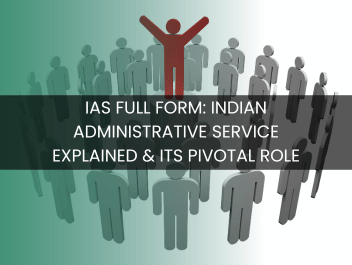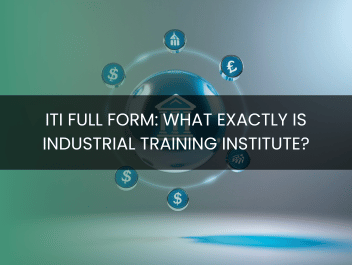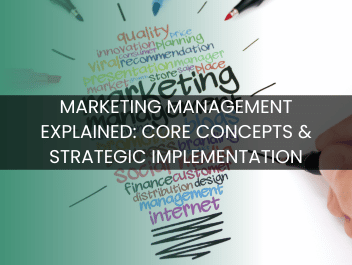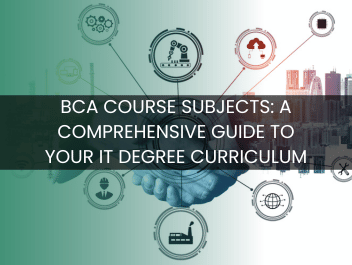
Top 15 In-Demand Professional Courses for Commerce Graduates in 2025
In today's fast-paced economy, keeping pace with the evolving job market is more crucial than ever for commerce graduates. Professional development opens doors to opportunities, making job-oriented courses for commerce graduates essential. As the landscape continues to shift, extra courses for commerce students provide the competitive edge needed to thrive.
Commerce graduates possess a diverse skill set, but the path to success often involves honing these abilities through specialized courses. From accounting to digital marketing, these courses not only enhance marketability but also align with the dynamic demands of the industry. As we approach 2025, the emphasis on job-oriented courses for commerce graduates is stronger than ever.
In this article, we'll explore the top 15 in-demand professional courses for commerce graduates in 2025. Each course is designed to equip students with the latest skills, ensuring they remain competitive and empowered in their careers. Discover how these extra courses for commerce students can set the stage for future success.
Table of Content
- 1. The Importance of Professional Development in Commerce
- 2. Advantages of Professional Development:
- 3. Chartered Accountancy (CA): A Timeless Choice
- 4. Association of Chartered Certified Accountants (ACCA): Global Financial Expertise
- 5. Chartered Financial Analyst (CFA): Mastering Investment Management
- 6. Certified Management Accountant (CMA): Enhancing Managerial Skills
- 7. Certified Public Accountant (CPA): Navigating Public Accounting
- 8. Digital Marketing: Harnessing the Digital Economy
- 9. Financial Risk Management (FRM): Strategic Risk Assessment
- 10. Business Analytics: Driving Data-Driven Decisions
- 11. Supply Chain Management (SCM): Optimizing Operations
- 12. Company Secretary (CS): Legal and Compliance Expertise
- 13. Content Marketing: Captivating Audiences
- 14. Search Engine Optimization (SEO): Boosting Online Visibility
- 15. Human Resource Analytics: Data in Personnel Management
- 16. Emerging Trends in Professional Courses
- 17. Conclusion: Equipping for a Dynamic Future
The Importance of Professional Development in Commerce
Professional development is crucial for commerce graduates aiming for successful careers. Pursuing job-oriented courses for commerce graduates can enhance both theoretical knowledge and practical skills.
Advantages of Professional Development:
- Wide Range of Opportunities: By engaging in extra
courses for commerce students, individuals can explore various career options
such as Financial Analyst, Investment Banker, and Financial Advisor.
- Improved Job Prospects: These courses offer a strong foundation for
high-paying jobs in financial management, business operations, and portfolio
management.
- Enhanced Skills: Professional courses provide skills in digital
marketing, social media marketing, and financial analysis, vital for the modern
job market.
Career Options After 12th Commerce:
|
Course Name |
Career Path |
|
Financial Accounting |
Cost Accountant |
|
Digital Marketing |
Social Media Manager |
|
Portfolio Management |
Investment Banker |
For commerce graduates, embracing professional development can lead to rewarding career opportunities. Taking extra courses for commerce students can bridge the gap between academic learning and real-world application, ensuring a successful career trajectory in various job roles.
Chartered Accountancy (CA): A Timeless Choice
Chartered Accountancy (CA) remains a timeless and sought-after career for commerce graduates. CA offers a strong foundation in financial accounting, tax laws, and auditing, setting professionals apart in business operations. The course is divided into three levels: Foundation, Intermediate, and Final, providing a well-structured path to success.
Why Choose CA?
- Career Prospects: CAs have wide-ranging job
opportunities, including roles as Financial Analyst, Investment Banker, or
Financial Advisor.
- Job Security: CAs are in high demand across industries, offering a
secure and rewarding career.
- High-Paying Jobs: Professionals often secure high-paying roles due to
their expertise in financial analysis and management.
- Global Recognition: The qualification is recognized internationally,
providing opportunities worldwide.
Course Structure Overview
|
Level |
Features |
|
Foundation |
Basics of accounting and law |
|
Intermediate |
In-depth financial analysis |
|
Final |
Advanced auditing and taxation |
Choosing Chartered Accountancy as a career path ensures strong theoretical knowledge and practical skills essential for excelling in various business operations. It stands as a beacon for those aiming for a successful career in commerce.
Association of Chartered Certified Accountants (ACCA): Global Financial Expertise
The Association of Chartered Certified Accountants (ACCA) is a globally recognized body offering qualifications in accountancy. It equips students with the necessary skills for a successful career in finance and accounting. Here’s why ACCA is considered a leader in global financial expertise:
- Global Recognition: ACCA qualifications are recognized worldwide, opening up a wide range of career prospects in different countries.
- Comprehensive Curriculum: The ACCA syllabus covers essential areas such as financial management, financial accounting, and financial analysis. This strong foundation allows graduates to excel in various job roles, such as Financial Analyst or Financial Advisor.
- Practical and Theoretical Knowledge: ACCA balances theoretical knowledge with practical skills. It ensures that candidates are well-prepared for the real-world challenges in business operations and financial sectors.
- Diverse Career Opportunities: ACCA graduates find themselves equipped for high-paying jobs in different sectors including investment banking, portfolio management, and cost accounting.
- Flexible Learning: The flexibility of ACCA courses allows students to study at their own pace while gaining the knowledge necessary for job-oriented courses for commerce graduates.
By choosing ACCA, you pave the way for a rewarding career in a globally recognized and ever-evolving field.
Chartered Financial Analyst (CFA): Mastering Investment Management
The Chartered Financial Analyst (CFA) designation is a globally recognized credential for investment management professionals. Aspiring CFAs gain in-depth knowledge in financial analysis, portfolio management, and ethical standards. Ideal for those seeking a rewarding career in finance, the CFA program provides a strong foundation in investment principles.
Benefits of the CFA Program:
- Wide Range of Knowledge: Covers topics like financial accounting, economic analysis, and equity investments.- Career Prospects: Opens doors to high-paying jobs as Financial Analysts, Investment Bankers, and Financial Advisors.
- Practical Skills: Blends theoretical knowledge with real-world financial management practices.
Enrolling in the CFA program is one of the best extra courses for commerce students, offering promising job prospects. The rigorous curriculum ensures that graduates of this program are equipped to navigate the complexities of global financial markets. Candidates often pursue this course after completing their 12th commerce education, aiming for a successful career in finance.
Whether you're eyeing a career path as a Cost Accountant or business analyst, the CFA designation enhances your credentials and job prospects. Embrace the opportunities the CFA provides to master the intricacies of investment management and reach new heights in your professional journey.
Certified Management Accountant (CMA): Enhancing Managerial Skills
The Certified Management Accountant (CMA) designation is a highly regarded credential for enhancing managerial skills. It equips commerce graduates with theoretical knowledge and practical skills necessary for a successful career. Holding a CMA can significantly improve job prospects and open doors to rewarding career opportunities.
Benefits of CMA:
- Wide Range of Knowledge: Covers topics like
financial accounting, financial management, and cost control.
- Strong Foundation: Builds a solid base for financial analysis and
strategic management.
- High-Paying Jobs: Prepares graduates for roles like Financial Analyst
and Investment Banker.
Key Components of CMA:
- Financial Planning
- Performance Control
- Strategic Decision Making
Holding a CMA allows commerce graduates to gain career opportunities in diverse fields. It provides a competitive edge in job roles such as business analysts and financial advisors. With this certification, candidates can expect more job opportunities and a higher salary potential.
Choosing extra courses for commerce students like the CMA is a strategic step towards a successful career path. By integrating business operations with financial analysis, CMAs play a crucial role in the financial management of organizations.
Certified Public Accountant (CPA): Navigating Public Accounting
Becoming a Certified Public Accountant (CPA) is a rewarding career path for those interested in public accounting. The CPA designation offers numerous job opportunities globally, setting a strong foundation for a successful career in finance and accounting.
Key Benefits of a CPA Certification:
- Wide Range of Career Prospects: CPAs can work in auditing, tax preparation, financial planning, and consultancy.
- High-Paying Jobs: With a CPA, you can pursue high-paying roles such as Financial Analyst or Cost Accountant.
- Job Opportunities: CPAs have diverse job prospects in both public and private sectors.
Table: Career Opportunities for CPAs
|
Job Role |
Average Salary (USD) |
|
Financial Analyst |
$80,000 |
|
Tax Consultant |
$70,000 |
|
Auditor |
$75,000 |
|
Financial Advisor |
$85,000 |
Certified Public Accountants are vital in financial management, offering extensive knowledge in financial accounting and analysis. This role requires both theoretical knowledge and practical skills to guide business operations efficiently and strategically.
Earning a CPA is more than just passing a test; it’s about enhancing your career opportunities and achieving a rewarding, stable profession in accounting.
Digital Marketing: Harnessing the Digital Economy
The digital revolution has paved the way for businesses to reach limitless audiences through digital marketing. This form of marketing uses the internet to engage customers through various channels such as social media, email, and search engines.
Businesses leverage digital marketing to create a strong foundation in the online market. It offers numerous career opportunities for individuals, providing job prospects in areas such as social media marketing, search engine optimization (SEO), and content marketing. These roles require a combination of theoretical knowledge and practical skills.
Digital marketing not only enhances business operations but also optimizes investment strategies, such as Digital Marketing Analyst or SEO Specialist. Financial management is crucial in digital campaigns to ensure high returns on investment.
Key Components of Digital Marketing:
- Search Engine Optimization (SEO)
- Content Creation
- Social Media Strategies
- Email Marketing
These components are integral in building a rewarding career in digital marketing.
The digital economy continues to grow, offering wide-ranging, high-paying jobs for those looking to make a successful career in digital marketing. Whether you are a rookie or a seasoned marketer, the career path is vast and opportunity-rich.
Financial Risk Management (FRM): Strategic Risk Assessment
Financial Risk Management (FRM) is crucial in identifying and assessing potential risks that might impact an organization's financial health. Strategic Risk Assessment focuses on evaluating these risks to create effective mitigation strategies.
Key Aspects of Strategic Risk Assessment:
- Risk
Identification
- Analyze financial data to detect potential threats.
- Use tools such as SWOT analysis to pinpoint vulnerabilities.
- Risk
Analysis
- Evaluate the likelihood of risks occurring.
- Assess the potential financial impact of each risk.
- Risk
Prioritization
- Rank risks based on their severity and probability.
- Allocate resources efficiently to address high-priority risks.
- Risk
Mitigation Strategies
- Develop action plans to minimize risk impact.
- Implement control measures to prevent risk occurrence.
- Continuous
Monitoring
- Regularly review risk management processes.
- Adapt strategies to address evolving financial landscapes.
Strategically assessing risks not only safeguards against financial loss but also ensures an organization is poised for a stable and successful future. A proactive approach in financial risk management can protect assets and enhance business resilience.
Business Analytics: Driving Data-Driven Decisions
Business Analytics plays a crucial role in shaping data-driven decisions. In today's fast-paced business environment, the ability to analyze data effectively empowers companies to make informed choices. By leveraging Business Analytics, businesses can refine their strategies, optimize operations, and predict future trends.
Benefits of Business Analytics:
- Informed Decision Making: Access to real-time data
aids in quick and accurate decisions.
- Operational Efficiency: Identifying inefficiencies and areas for
improvement.
- Market Trends Prediction: Anticipating shifts in consumer behavior and
market dynamics.
Key Areas of Business Analytics:
|
Key Area |
Description |
|
Financial Analysis |
Offers insights into financial health. |
|
Marketing Insights |
Enhances strategies through customer data. |
|
Risk Management |
Identifies potential risks and mitigates them. |
The integration of Business Analytics into business operations provides a strong foundation for a successful career path. By turning theoretical knowledge into practical skills, professionals can excel in various career opportunities such as business analyst and Financial Advisor. Embracing Business Analytics can lead to a rewarding career, paving the way for high-paying jobs and ongoing career growth.
Supply Chain Management (SCM): Optimizing Operations
Supply Chain Management (SCM) is crucial for optimizing operations in businesses. It involves managing the flow of goods and services, overseeing processes that transform raw materials into final products. SCM aims to streamline supply-side activities to maximize customer value and achieve a competitive advantage.
Key Components of SCM:
- Planning: Forecasting demand to ensure efficient
operations.
- Sourcing: Selecting suppliers to provide goods and services.
- Manufacturing: Efficient production processes to meet demand.
- Delivery: Logistics management for timely shipping.
- Returns: Handling returned products effectively.
Benefits of SCM:
- Cost Efficiency: Reducing overhead by optimizing inventory and transportation.
- Improved Quality Control: Ensuring high-quality standards from supplier to customer.
- Enhanced Collaboration: Better communication across suppliers and partners.
- Customer Satisfaction: Meeting customer needs swiftly with improved service.
Supply Chain Management is pivotal in achieving operational efficiency. By focusing on its core components, businesses can optimize their operations, thereby boosting performance and gaining a strategic edge in the market.
|
Component |
Focus Area |
|
Planning |
Demand Forecasting |
|
Sourcing |
Supplier Selection |
|
Manufacturing |
Production Process |
|
Delivery |
Logistics Management |
|
Returns |
Product Handling |
Understanding these elements ensures a robust supply chain and enhanced business performance.
Company Secretary (CS): Legal and Compliance Expertise
Company Secretary (CS) is a pivotal role in legal and compliance management within an organization. CS professionals ensure the company adheres to regulatory and statutory requirements, providing vital guidance on corporate governance.
Key Responsibilities:
- Legal Compliance: Oversee adherence to laws and
regulations.
- Corporate Governance: Advise the board on governance best practices.
- Liaison Duties: Act as a bridge between stakeholders, company, and
government.
Why CS is Essential:
- Risk Management: Helps in mitigating legal and
financial risks.
- Efficient Administration: Enhances operational effectiveness through
compliance.
CS roles are crucial for any company that aims to maintain a strong foundation in legal and ethical business practices. Opting to become a Company Secretary opens doors to a rewarding career in financial management and legal affairs.
|
Role |
Benefits |
|
Legal Compliance |
Ensures regulatory adherence |
|
Corporate Governance |
Maintains ethical business operations |
|
Risk Management |
Mitigates potential legal risks |
Pursuing a career as a Company Secretary provides ample job opportunities and a successful career path in the dynamic field of corporate law and compliance.
Content Marketing: Captivating Audiences
Content marketing is vital for engaging audiences and driving business success. It's about creating valuable, relevant content to attract and retain a specific audience.
Key Elements:
- Understanding Your Audience: Knowing who your audience is and what they want. Tailor content to their interests and needs.
- Diverse Content Types: Utilize blogs, videos, infographics, and social media posts. Variety keeps audiences engaged.
- Consistent Publishing: Regular content updates maintain audience interest and improve SEO, leading to higher search rankings.
- Storytelling Techniques: Captivating stories create emotional connections. They make your content memorable and shareable.
Benefits of Effective Content Marketing:
- Increased Brand Awareness: Reach a wider audience.
- Improved Customer Engagement: Build strong relationships.
- Higher Conversion Rates: Turn traffic into loyal customers.
Types of Content with Examples:
|
Content Type |
Example |
|
Blog Posts |
Industry Tips |
|
Videos |
Product Demos |
|
Infographics |
Data Presentations |
|
Social Media |
Engaging Posts |
Incorporating these elements allows businesses to effectively captivate and retain their audience.
Search Engine Optimization (SEO): Boosting Online Visibility
Search Engine Optimization (SEO) is a crucial tool for enhancing online visibility. It involves optimizing a website to rank higher on search engine results pages, making it more accessible to potential visitors.
Key Benefits of SEO:
- Increased Traffic: By appearing on the first page of search results, more users are likely to visit your site.
- Cost-Effective Marketing: Unlike paid ads, organic SEO attracts users without ongoing costs.
- Credibility and Trust: High search rankings often equate to perceived reliability and authority.
- Better User Experience: Well-optimized sites offer quicker load times and mobile friendliness, improving user experience.
SEO Techniques Include:
- Keyword Research: Identifying popular terms your audience searches for.- On-Page Optimization: Using relevant keywords in titles, headers, and content.
- Link Building: Acquiring backlinks from reputable websites.
- Technical SEO: Ensuring website speed, mobile-responsiveness, and structure are optimal.
In today's digital landscape, implementing effective SEO strategies is vital for establishing a strong online presence and ensuring long-term success. For more insights, visit mindgroom.in.
Human Resource Analytics: Data in Personnel Management
Human Resource Analytics, also known as HR Analytics, plays a pivotal role in personnel management. It involves analyzing workforce data to improve HR practices and boost business performance. By leveraging data, businesses can make informed decisions about recruitment, talent management, and employee retention.
HR Analytics focuses on various data metrics, including employee performance, engagement levels, and turnover rates. These metrics help organizations predict trends and identify potential risks. For example, understanding patterns in turnover rates can aid in developing strategies to improve employee retention.
Key Benefits of HR Analytics:
- Enhanced Recruitment: By analyzing candidate data, HR teams can identify the best talent.
- Improved Employee Retention: Identifying factors leading to employee dissatisfaction helps reduce turnover.
- Optimized Training Programs: Data insights help in tailoring training sessions to meet employees’ needs.
Here's a simple table to illustrate the impact areas of HR Analytics:
|
Impact Area |
Description |
|
Recruitment |
Identifies ideal candidate profiles |
|
Employee Retention |
Pinpoints retention strategies |
|
Training and Development |
Customizes employee training programs |
Incorporating data analytics into personnel management creates a strong foundation for a successful career in HR.
Emerging Trends in Professional Courses
Emerging trends in professional courses are reshaping the job market, offering exciting career prospects. Job-oriented courses for commerce graduates are increasingly popular, giving them a competitive edge in various fields.
A wide range of extra courses for commerce students focus on practical skills over theoretical knowledge. For instance, Digital Marketing and social media marketing have become essential in today's business operations, providing lucrative career opportunities. Financial management courses, investment banking, and portfolio management are also in demand. These not only enhance job prospects but also pave the way for high-paying jobs like Financial Analyst or Financial Advisor roles.
Cost Accounting and financial accounting courses help build a strong foundation, essential for business analysts. Such courses after 12th commerce open up diverse career paths and job roles, resulting in a rewarding career.
Table: Job-Oriented Courses for Commerce Graduates
|
Course Name |
Career Path |
|
Digital Marketing |
Social Media Marketer |
|
Financial Management |
Financial Analyst |
|
Investment Banking |
Investment Banker |
|
Cost Accounting |
Cost Accountant |
By enrolling in these job-oriented courses for commerce graduates, students can harness a successful career with a promising future.
Conclusion: Equipping for a Dynamic Future
In today's ever-changing job market, commerce graduates should consider job oriented courses tailored to enhance both theoretical knowledge and practical skills. With a wide range of options available, choosing extra courses for commerce students can pave the way for high-paying jobs and a rewarding career.
Key Job-Oriented Courses:
- Digital Marketing: Offers career prospects in social media marketing and more.
- Financial Management: Develops skills for roles such as Financial Analyst and Investment Banker.
- Cost Accountant: Prepares students for handling financial accounting and cost analysis.
Choosing the right professional courses after 12th commerce can build a strong foundation. It not only bolsters career opportunities but also aligns with the dynamic business operations of today. For those eyeing job prospects with stability, courses in financial analysis and portfolio management can be vital.
Ultimately, these extra courses for commerce students ensure a successful career path, chock-full of job opportunities and career options. Equipping oneself with the right blend of theoretical and practical knowledge is key to navigating the business analysts' world.
Align your academic pursuits to meet the demands of tomorrow—this strategic preparation will help secure a bright future.
Looking For Job Satisfaction on the long run?
Please feel free to contact our experts
Call to ask any question
+91-9319336222Monday to Saturday
(9:00 AM to 8:00 PM)Resent Blogs
10 Things to Do During an Interview to Impress Your Future Employer
Learn MoreCrafting Your Personal Narrative: A Guide to Writing About Yourself
Learn MoreTop 10 Essential Interview Questions and Expert Answers for 2025
Learn MoreAce Your Next Interview: Essential Questions and Expert Answers for 2025
Learn MoreFirst-Time Manager Interview: Crucial Questions and Strategies for Success
Learn More150 Essential General Knowledge Questions for Interviews in 2025
Learn MoreMaster the Google Interview: Strategies for Success in 2025
Learn MoreHow Can You Describe Yourself Professionally? 5 Key Strategies You Need to Know
Learn MoreMastering the Art of How to Take Interview: Essential Techniques for Success
Learn More25 Essential HR Interview Questions and Answers PDF You Can't Ignore
Learn More7 Tips to Ace Your HR Screening Round and Land Your Dream Job
Learn More10 Essential Tips for Acing Your Interview Exam
Learn More5 Unique Interview Format Examples to Stand Out in Your Next Interview
Learn More5 Powerful Techniques for a Memorable Interview Introduction
Learn MoreMaster Your Next Interview with These Top Interview Preparation Apps
Learn MoreMastering the Art: Top Interview Questions for 12th Class Students
Learn More7 Must-Know Interview Questions for Freshers to Ace Your Job Hunt
Learn MoreMastering Interview Questions for HR Position with Answers: Strategies for Success
Learn More12 Essential Interview Questions for Recruiter Position You Should Prepare For
Learn More10 Must-Know Interview Questions UK Employers Love to Ask
Learn More10 Creative Interview Writing Examples to Spark Your Imagination
Learn More15 Essential Managerial Interview Questions for Freshers to Prepare
Learn More15 Unique Marketing Interview Questions You Haven't Prepared For
Learn More7 Key Strategies for a Successful Mock Interview Session
Learn MoreThe Ultimate Guide to Model Interview Questions: What You Need to Know
Learn More5 My Self Question Exercises to Unlock Your True Potential
Learn More10 Normal Questions That Can Spark Deep Conversations
Learn More15 Essential Personal Interview Questions for Freshers to Ace Your Next Job
Learn More10 Essential Phone Interview Questions You Can’t Afford to Ignore
Learn More15 Essential Sales Interview Questions and Answers for Freshers
Learn More7 Key Situational Interview Questions Every Employer Should Ask
Learn More15 Essential Software Developer HR Interview Questions You Need to Prepare For
Learn MoreMastering the Technical Interview: Essential Questions and Answers
Learn MoreTop Strategies for Responding to Tell Me About Yourself in a Student Interview
Learn MoreTop 10 Interview Questions and Expert Answers
Learn MoreMastering the Art of Interviewing: 50 Tough Questions and Smart Answers
Learn MoreHow to Ace Your Next Mock Interview: Tips and Strategies for Success
Learn MoreYour Ultimate Guide: 60 Insightful Questions to Ask Interviewers
Learn MoreCrafting the Perfect Response to Why Do You Want This Job?
Learn MoreUnique Ways to Tackle the Question Why Should We Hire You?
Learn MoreWhy Should We Hire You? - Top 10 Answers for Customer Service Roles
Learn MoreMastering the Art of Discussing Work Experience in Interviews
Learn MoreMastering Your Sales Interview: 50 Essential Questions and Answers
Learn MoreCareer Paths After 12th Commerce: Your Future Starts Here
Learn MoreExplore One-Year Courses After 12th for Non-Medical Students
Learn MoreQuick Career Paths: 2-Year Degree Courses After 12th for Fast-Track Success
Learn MoreComprehensive Guide: Courses After 12th Commerce
Learn MoreTop 10 Lucrative Courses to Consider After Completing Engineering
Learn MoreAdvancing Your Career: Top Choices After B.Tech in 2025
Learn MoreExplore Your Future: After CET Exam Which Course is Best for Aspiring Professionals?
Learn More5 Reasons Why After Inter CEC, Choosing the Right Course is Crucial
Learn MoreAfter PUC Which Course is Best for Aspiring Engineers? Explore Your Options!
Learn MoreUnlocking Your Future: Best Arts and Science Courses After 12th for 2025
Learn MoreWhy a Bachelor Degree in Commerce is Your Pathway to Success
Learn More15 Best Career Courses to Boost Your Earning Potential in 2025
Learn MoreEmerging Career Fields for 2025: What You Need to Know
Learn MoreExploring In-Demand Career Paths After 12th: Science, Arts, Commerce
Learn More15 Lucrative Science Careers You Should Consider
Learn MoreHigh-Paying Career Paths for Girls After 12th Commerce
Learn MoreTop 10 High Salary Career Courses After 12th Biology
Learn MoreTop 10 High-Paying BSc Specializations for 2025
Learn MoreExploring the Future: Innovative Career Paths for B.Tech Graduates in 2025
Learn MoreComprehensive Guide to B.Tech Specializations for MPC Graduates
Learn MoreUnlocking Your Potential: The Ultimate B Tech Job List for 2025
Learn MoreB.Tech Salary Insights: How Much Can You Earn Per Month?
Learn MoreEssential Business Courses After 12th: Your Guide to a Successful Career
Learn MoreHow Commerce Students Can Transition to BSc IT
Learn MoreExploring Career Paths After 12th: Your Guide to Success in 2025
Learn MoreCertainly! Here are 10 additional title ideas inspired by the list you provided
Learn MoreExploring Career Paths After Engineering: Your Guide to the Future
Learn MoreThe Ultimate Guide to Career Options Post-High School Graduation
Learn MoreDiscover the Top 10 Chemistry Courses After 12th That Lead to High-Paying Jobs
Learn MoreExplore the Best Diploma and Certificate Programs After 12th Commerce
Learn MoreCareer Paths for Computer Science Graduates: Top Opportunities to Explore
Learn MoreExplore Top Courses After 12th: Your Path in Science, Arts, or Commerce
Learn MoreTop 10 Courses After 12th Commerce for a Successful Career
Learn MoreTop Paying Professional Courses After 12th for Commerce Students
Learn MoreEmerging Career Paths After 12th Commerce Without Maths
Learn MoreExploring Career Paths After 12th Science: A Complete Guide
Learn MoreComprehensive Guide to Courses and Career Paths after 12th Grade
Learn MoreEmerging Career Paths in India: What to Expect in 2025
Learn MoreTop Diploma Paths for Students After Completing 12th Science
Learn MoreTop 15 Easiest High-Paying Jobs to Pursue in India by 2025
Learn MoreNavigating Your Future: Easy Degree Options After 12th
Learn MoreExploring Top Engineering Branches After 12th: A Comprehensive Guide
Learn MoreExploring Advanced Studies: Top Entrance Exams for Engineering Graduates
Learn MoreMBA Salary Insights: Top Packages and Compensation Trends in India
Learn MoreTop 15 Lucrative Careers in India for 2025
Learn MoreTop 10 High-Paying Jobs for Commerce Graduates Without Maths
Learn MoreTop 10 High Salary Courses After 12th PCB for Future Success
Learn MoreHigh-Earning Courses to Pursue After 12th Science in 2025
Learn MoreHigh Paying Career Paths for BiPC Students: Top 10 Courses to Consider
Learn MoreExploring High-Paying Engineering Degrees for the Future
Learn MoreExploring Integrated Courses After 12th: A Comprehensive Guide for Students
Learn MoreExploring Career Prospects: What Can You Do with a BBA Degree?
Learn MoreTop 15 In-Demand Professional Courses for Commerce Graduates in 2025
Learn MoreExploring Lucrative Job Paths for BBA Graduates in 2025
Learn MoreMBA Full Form Explained: Master of Business Administration & Its Strategic Career Value
Learn MoreBBA Full Form: The Definitive Guide to BBA Degrees, Admissions, & Career Paths
Learn MoreBCA Full Form Explained: Your Complete Guide to the Degree, Admission & Career Scope
Learn MoreIAS Full Form: Indian Administrative Service Explained & Its Pivotal Role
Learn MoreMBBS Full Form: Unraveling the Meaning Behind a Doctors Qualification
Learn MoreUPSC Full Form: Union Public Service Commission and Its Vital Role
Learn MoreBSc Full Form: Bachelor of Science & What It Means for Your Future
Learn MoreITI Full Form: What Exactly is Industrial Training Institute?
Learn MoreLLB Full Form: Your Ultimate Guide to Bachelor of Laws, Eligibility & Career Scope
Learn MoreIs There a True Computer Full Form? Unpacking the Popular Acronym
Learn MoreB.Tech Full Form Unpacked: Meaning, Scope, and Why It Matters for Your Career
Learn MoreIIT Full Form: Unveiling the Indian Institute of Technology and Its Legacy
Learn MoreMCA Full Form Revealed: Master of Computer Applications & Its Significance
Learn MoreIIT Full Form: Indian Institute of Technology – Understanding Its Legacy, Campuses, and Global Standing
Learn MoreYour Complete Guide to Becoming a Veterinarian: Education, Specialties & Career Paths
Learn MoreBSc Degree: Your Complete Guide to Courses, Careers, and Future Prospects
Learn MoreB.Com Full Form Unveiled: What Bachelor of Commerce Truly Means
Learn MoreBAMS Full Form: Bachelor of Ayurvedic Medicine and Surgery — Unpacking Its Meaning & Career Scope
Learn MoreWhat is a Polytechnic? Your Complete Guide to Courses, Admissions & Career Paths
Learn MoreSSC GD Constable Exam News 2025-26: Latest Updates on Vacancies, Dates & Application
Learn MoreHow to Choose the Best Veterinarian for Your Pet: A Comprehensive Guide
Learn MoreAir Hostess 2026: Your Complete Roadmap to Landing the Dream Job
Learn MoreUnlocking Your Future: The Ultimate BSc Degree Guide (Courses, Careers & Admissions)
Learn MoreCMA Full Form: Certified Management Accountant (Global Standard Explained)
Learn MoreNACH Full Form Explained: What It Is & Why It Matters in Banking
Learn MoreThe Modern Anthropologist: Understanding Their Role, Impact, and Diverse Specializations
Learn MoreBBA: Your Ultimate Guide to Course Details, Admission, Fees, and Future Career Prospects
Learn MoreBDS Full Form Unpacked: Your Essential Guide to Dentistry Courses, Admissions & Career Scope
Learn MoreBHMS Full Form Revealed: Your Complete Guide to Bachelor of Homeopathic Medicine & Surgery
Learn MoreB.Tech Admissions 2026: Your Complete Guide to Courses & Eligibility
Learn MoreCFA Full Form: Understanding the Chartered Financial Analyst Designation
Learn MoreMerchant Navy Salary in India: Unveiling Pay Scales by Rank & Experience
Learn MoreTS EAMCET 2026: Official Notification, Exam Dates & Application Guide
Learn MoreVITEEE 2026: Full Guide to Application, Dates, Syllabus & Preparation
Learn MoreBMS Full Form: Unveiling Bachelor of Management Studies & What it Entails
Learn MoreB.Sc. Computer Science: Your Complete Guide to Courses, Careers & Eligibility
Learn MoreComputer Science Explained: From Basics to Advanced Concepts
Learn MoreWorlds Most Difficult Exams: A Definitive Ranking for 2025
Learn MoreUnion Public Service Commission (UPSC): All You Need to Know
Learn MoreBE Full Form Explained: What Bachelor of Engineering Means & Your Career Path
Learn MoreDMIT Full Form Revealed: Unpacking the Dermatoglyphic Multiple Intelligence Test
Learn MoreIndias Most Difficult Exams: The Ultimate Ranking for 2025
Learn MoreCLAT Full Form: Unveiling the Common Law Admission Test + Key Details
Learn MoreHighest Paying Jobs in India: Unveiling the Top 25 Roles & Their Lucrative Salaries
Learn MoreMA Full Form: Unpacking the Master of Arts Degree & What It Entails
Learn MoreMarketing Management Explained: Core Concepts & Strategic Implementation
Learn MoreBCA Course Subjects: A Comprehensive Guide to Your IT Degree Curriculum
Learn MoreCAT Exam Date 2026: When to Apply & Exam Schedule Revealed
Learn MoreCDS Full Form: Unveiling Combined Defence Services & Your Path to Commission
Learn MoreLab Technician Career Path: Duties, Skills, and Salary Guide
Learn MoreYour Complete Guide to Becoming a Successful Software Developer
Learn MoreAir Hostess Course Guide: Everything You Need to Know for Your Aviation Career
Learn MoreIntroduction: Navigating Your Path to Medical Excellence in India
Learn MoreTop Commerce Courses After 12th: Unlock Lucrative Career Paths
Learn MoreTop Industrial Training Institutes: Your Guide to Skilled Trades
Learn MoreUnderstanding Psychometric Tests: Your Definitive Guide & Free Examples
Learn MoreWhat Does a Surgeon Do? A Comprehensive Guide to the Profession
Learn MoreUG Explained: Your Ultimate Guide to Undergraduate Degrees & Admissions
Learn More10th Pass Govt Jobs 2026: Your Complete Guide to Apply & Secure Your Career
Learn MoreATMA: Your Complete Guide to the Management Admissions Test
Learn MoreBHMS Course Guide: Eligibility, Syllabus, Career Prospects & Top Colleges
Learn MoreUnlock Your Future: The Definitive Guide to Career Counselling
Learn MoreWhat Does a Clinical Psychologist Do? Your Comprehensive Guide
Learn MoreM.Tech Full Form: Master of Technology Explained (Meaning, Scope & Benefits)
Learn MoreRadiology Courses Explained: From Certificates to Masters Degrees
Learn MoreBSc Courses Explained: Full Guide to Specializations, Admissions & Career Paths
Learn MoreBSc Nursing Course: Admission Guide, Eligibility, Syllabus & Career Paths
Learn MoreBA LLB Full Form Explained: Unpacking Bachelor of Arts & Bachelor of Laws
Learn MoreTop BBA Colleges in India: Unveiling the Elite Institutions for Your Management Degree
Learn MoreUPSC CDS Exam Date 2026: Complete Schedule & Notification Details
Learn MoreTop Career-Focused Courses After 12th Grade: Unlock Your Future
Learn MoreExplore the World of Humanities Subjects: A Comprehensive Guide
Learn MoreIPU CET 2026: Complete Guide to Applications, Syllabus & Cutoffs
Learn MoreISI Full Form: Unveiling the Meaning & Importance of the Indian Standards Institute
Learn MoreJEE Advanced 2026 Exam Date: When Will the Exam Be Held?
Learn MoreJEE Main 2026 Result Date: When to Expect Session 1 & 2 Results
Learn MoreMCA Course Guide: Everything You Need to Know About Eligibility, Fees, and Admissions
Learn MoreMultimedia Explained: Your Complete Guide to Definition, Examples, and Impact
Learn MoreThe Ultimate Paramedical Courses List: Find Your Perfect Career Path
Learn MorePharm.D. Program: Your Complete Guide to Curriculum, Admissions & Outcomes
Learn MoreThe Ultimate Guide to Top IIT Colleges in India: Ranking, Admissions, and Courses
Learn MoreATC Full Form: Unpacking Air Traffic Control, Anatomy & More
Learn MoreB.Ed. Course Duration in India: Everything Aspiring Teachers Need to Know
Learn MoreB.Sc Psychology Degree: Your Guide to Admissions, Curriculum & Career Paths
Learn MoreB.Tech Computer Science: Your Complete Guide to Admission, Syllabus & Career Prospects
Learn MoreBDS Course Duration: How Long is Bachelor of Dental Surgery?
Learn MoreBFA Full Form Explained: What is a Bachelor of Fine Arts & Why it Matters
Learn MoreBiology Explained: What It Is, Its Core Concepts & Why It Matters
Learn MoreBPT Course: Your Complete Guide to Bachelor of Physiotherapy Admissions
Learn MoreBSc Nursing Full Form: What it Means and Why it Matters
Learn MoreThe Science Complete Guide: Best Courses & Career Paths Revealed
Learn MoreMaster Your Future: Your Complete Guide to 2026 Government Exams & How to Prepare
Learn MoreMPhil Explained: Your Complete Guide to the Master of Philosophy
Learn MoreBecome a Certified Stenographer: Your Complete Course Guide
Learn MoreTANCET 2026: Complete Exam Guide - Dates, Syllabus, and Preparation Tips
Learn MoreUpcoming Government Exams 2026: Full Schedule, Eligibility & Application Dates
Learn MoreWhat is CA? The Complete Guide to Chartered Accountancy and Your Career Path
Learn MoreAgnipath Scheme Explained: Eligibility, Benefits, Salary & Career Path
Learn MoreAFCAT 2026: Your Complete Guide to the Air Force Common Admission Test
Learn MoreConnet Us
Unlock Your Dream Career Potential - Get Expert Advice From Our Counselling Experts























































































































_Thumbnail_.png )
_Thumbnail_.png )














_All_You_Need_to_Know_Thumbnail_.png )
























_Thumbnail_.png )



































